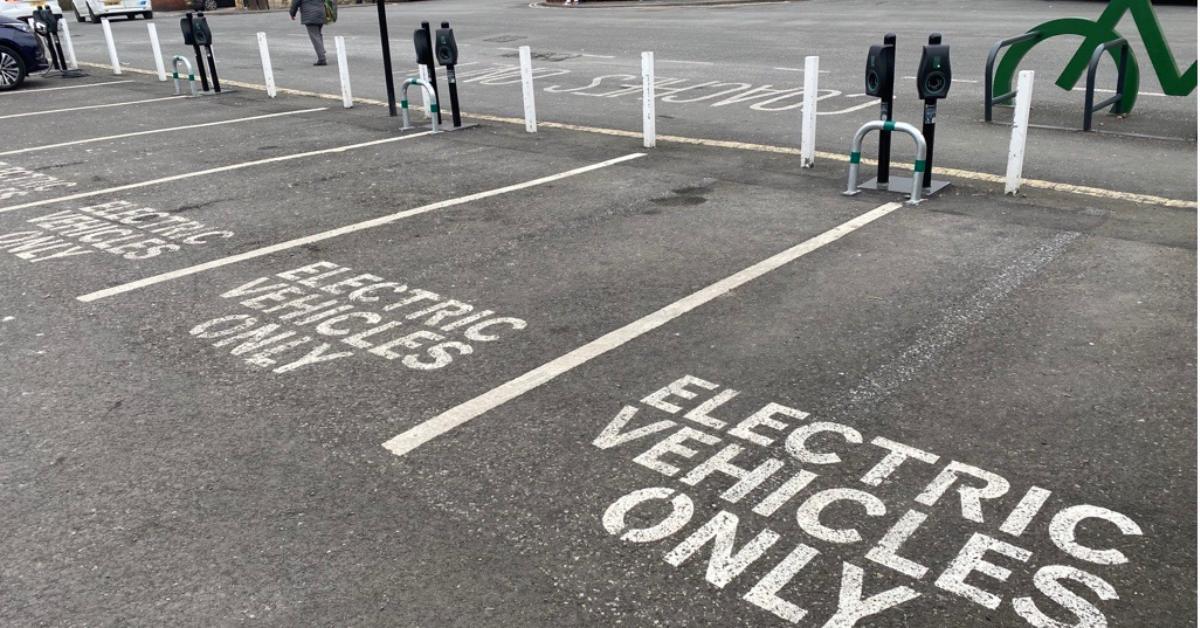Subscribe to trusted local news
If you are accessing this story via Facebook but you are a subscriber then you will be unable to access the story. Facebook wants you to stay and read in the app and your login details are not shared with Facebook. If you experience problems with accessing the news but have subscribed, please contact subscriptions@thestrayferret.co.uk. In a time of both misinformation and too much information, quality journalism is more crucial than ever. By subscribing, you can help us get the story right.
- Subscription costs less than £1 a week with an annual plan.
Already a subscriber? Log in here.
27
Jan 2025
Electric vehicle home charging help to be discussed

Households with no off-street parking could get help to charge electric vehicles on the street.
A report prepared for members of North Yorkshire Council’s environment executive ahead of a meeting on Friday (January 24) outlines plans to improve public on-street electric vehicle infrastructure.
It also proposes a trial of cable-mats and cross-pavement gullies to aid household electric vehicle charging, and adds that the trial could potentially lead to a review of council policy.
Cable-mats cover cables crossing the pavement so pedestrians don't trip over them as they go by, and cross-pavement gullies, which are a more expensive solution, provide a channel for cables to cross pavements below ground level.
Across North Yorkshire, around 25% of properties – or 65,000 homes – have no access to off-street parking and so are less likely to buy an electric vehicle.
Road transport accounted for 30% of the county's carbon emissions in 2022, so North Yorkshire Council aims to boost uptake of electric vehicles by developing a public charging network to help it reach its net-zero emissions goal.
But the report adds:
It is important to note that the aim is not to provide a charging point for every household in the county, but to provide accessible, equitably distributed charging infrastructure to ensure that all are able to access a public charging point.
Currently, all public charging infrastructure provided by North Yorkshire Council is located in council-owned car-parks. But the report says:
The location of NYC [North Yorkshire Council] car-parks does not lend them to being the sole provider of charging infrastructure for North Yorkshire residents.
It also makes the point that home charging is more desirable because it is cheaper than using public charging points. Current vehicle charging prices across most of North Yorkshire are set at 40p per kilowatt hour (kWh) – roughly equivalent to the price per litre of petrol or diesel – and rapid charging infrastructure is still more expensive, at between 65p and 89p/kWh.
By contrast, charging at home using an off-peak intelligent tariff costs just 7p/kWh.
The report adds that:
It is recommended that a public consultation takes place to seek feedback on how the trial is going and attitudes and approaches to the wider rollout of this programme.
The trial will seek to explore the viability of different solutions, their impact on pavement accessibility and their propensity to encourage the uptake of EVs [electric vehicles] in households with no off-street parking.
The matter will be discussed at a meeting on Friday morning of the council’s Environment Directorate, which is expected to be attended by council officer Karl Battersby, who is corporate director for Environment, and three Conservative councillors: Cllr Greg White, executive member for Managing our Environment; Keane Duncan, executive member for Highways and Transportation; and Mark Crane, executive member for Open to Business.
0